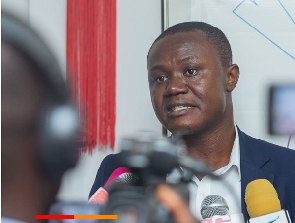 Executive Director of Africa-China Centre for Policy and Advisory, Paul Frimpong
Executive Director of Africa-China Centre for Policy and Advisory, Paul Frimpong
In 2013, China’s President, Xi Jinping, first officially announced the Belt and Road Initiative (BRI). This has become a global initiative aimed at building critical infrastructures to create connectivity spanning the three continents of Africa, Asia, and Europe to facilitate greater global growth and development.
As of August 2023, 155 countries were listed as having signed up to the BRI. Nearly 75% of the world's population and more than half of its GDP are represented by the participating nations.
This year marks the 10th anniversary of the BRI, and the forum has attracted over 4000 delegates from over 140 countries worldwide.
Speaking at the parallel session on ‘Youth Development and BRI’, Paul Frimpong, the Executive Director of the Africa-China Centre for Policy and Advisory (ACCPA), did not mince words, advocating for young people to be key stakeholders in the BRI initiative.
According to Mr. Frimpong, “for an initiative such as BRI, which seeks to accelerate shared growth and sustainable development around the world through enhanced connectivity, young people must be both active participants and significant beneficiaries”.
“BRI is an intergenerational global vision that has been implemented and is already unlocking limitless opportunities. It’s success in the generations ahead depends on the active involvement of young people today,” he added.
Mr. Frimpong used the African continent as a key reference in terms of demographics. Statistics show that Africa is the continent with more young people: 40% of the continent’s population is under the age of 15.
He called on all key stakeholders tasked with championing the next phase of the BRI to put the youth at the center of their initiatives and support youth-led programs that seek to propel deeper understanding about the BRI, especially in Africa.
His centre, ACCPA, has been at the forefront of building multi-level engagements on key topics that're shaping perspectives on Africa-China relations.